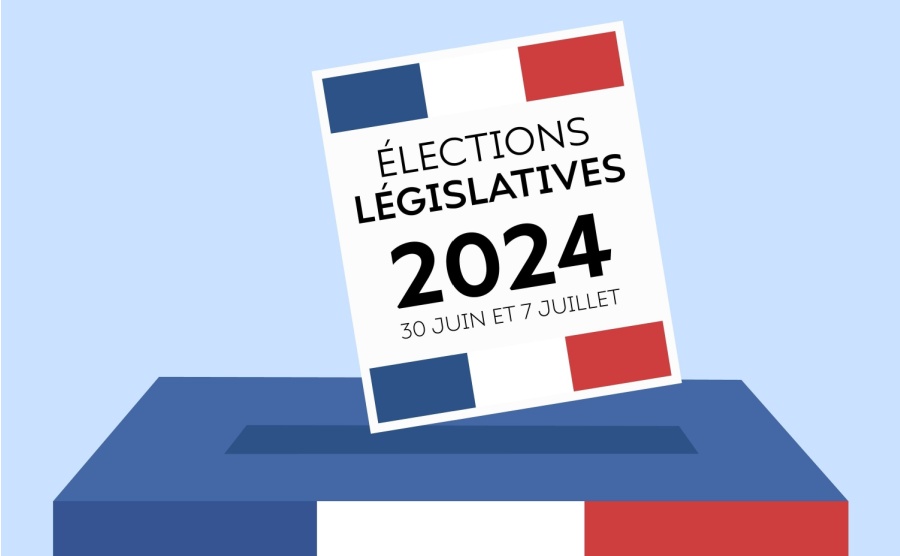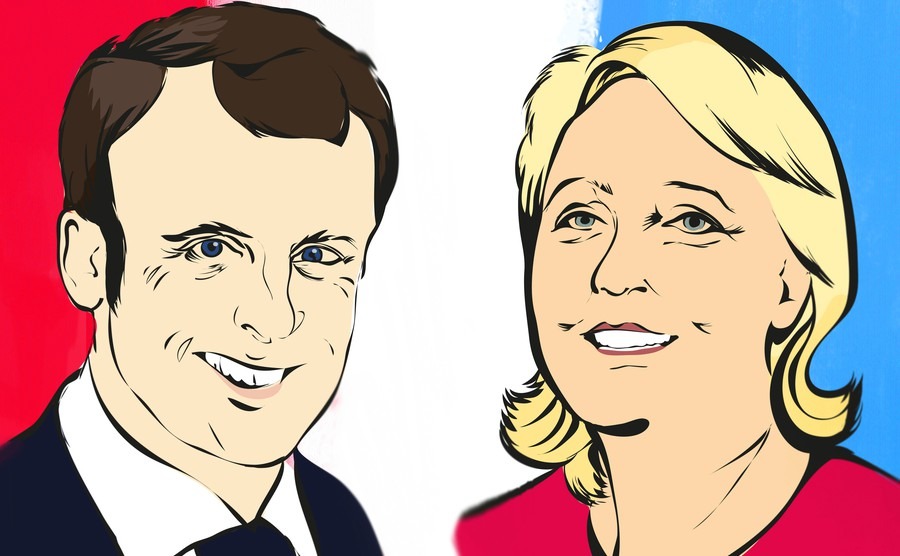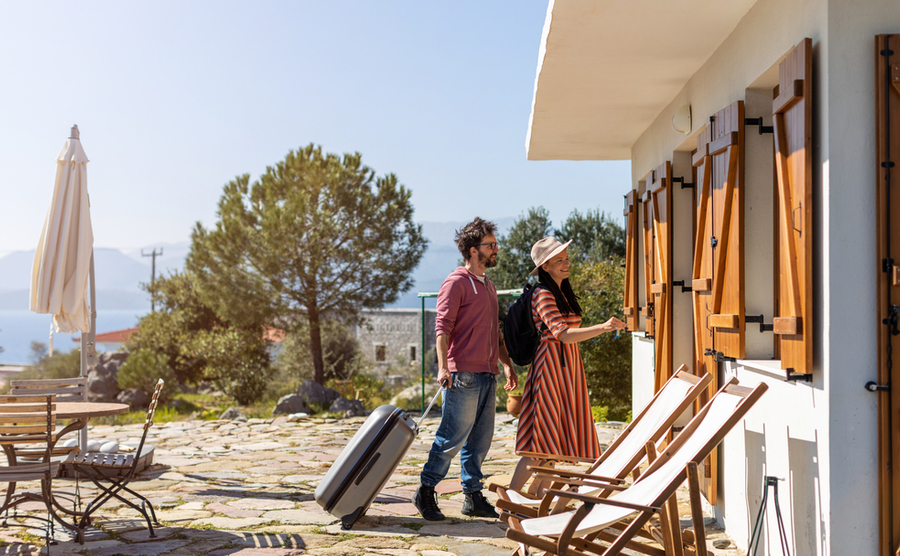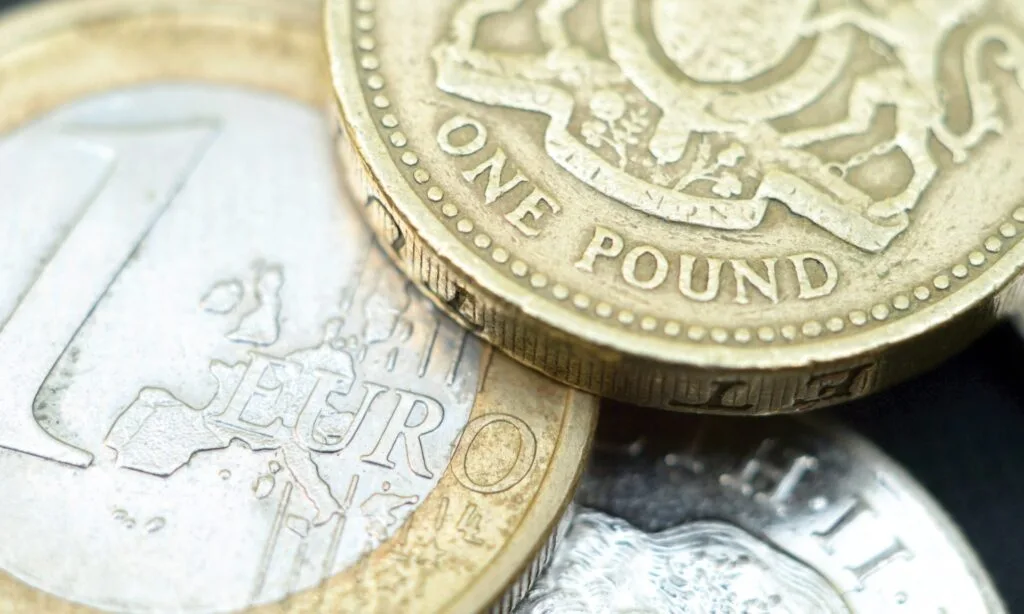The last few weeks have seen the UK and France share similar feelings of disappointment in light of elections on both sides of the channel.
In France, the second round of the snap election on July 7th, called by Emmanuel Macron, surprised residents across the country as it resulted in a hung parliament.
Meanwhile, in the UK, a new Labour government was expected and Keir Starmer took up residence at number 10 Downing Street.

French elections took place in June and July 2024. Image: Shutterstock
Find homes in France via our property portal.
Why is the result of the French election such a surprise?
It had been widely forecast that the far-right National Rally (NR) Party would win this election. The NR was founded by Jean-Marie Le Pen, Marine Le Pen’s father who held seriously extremist views on migration and was a holocaust denier. His daughter Marine strove to completely change the way the Party was viewed after her father was ousted from his role and she brought in the 28-year-old Jordan Bardella as leader. But the prediction that the NR would win in the second turned out to be incorrect. Instead, no one party had a majority after the second round last Sunday.
The French elections took place over two tranches and in the first round, the NR took a substantial lead. Marine Le Pen has had a good deal of growing support in France in recent years, particularly in rural areas and the northeast. However, following the second round, the NR came third, likely due to tactical voting and several far-left politicians withdrawing from the vote to sway the odds in favour of the left.
The left-wing New Popular Front (NFP) won 182 seats, president Macron’s ensemble alliance won 163 seats and the NR won 143 seats. The New Popular Front was only set up a few weeks ago and now is the largest party in French parliament.
Although many French and other European citizens are relieved that a far-right government is not now going to happen, the fact it is a hung parliament does mean that France is in something of a limbo since no party received an absolute majority.
As I write, there are rumblings in the upper political echelons about how the new government will be formed. It is essentially a hung parliament, but the left-wing alliance which came out as the biggest, said it thus is entitled to form the new cabinet. However, President Macron is likely to try to knit together some kind of coalition to keep control of the National Assembly.

Emmanuel Macron and Marine Le Pen
What’s next for France?
President Macron did not accept the resignation of prime minister, Gabriel Attal, and asked him to stay to act as a caretaker. This means the president will have him at his side when the Summer 2024 Olympics start on July 26th in Paris.
He will then wait until the National Assembly has completed its first sitting before deciding his next step. The president currently shares the power with the opposition parties, hence his desire to wait until the dust settles.
The president can choose to appoint anyone of his choice as prime minister and does not have to pick from within the NFP. However, the prime minister does need to garner enough backing in the National Assembly to avoid a no-confidence vote. As no party can form a government with a majority of seats, president Macron and the NFP will have to agree.
Currently, no political force can form a government with an absolute majority of seats, therefore Macron and the NFP will therefore have to come to an understanding. After the appointment of the new prime minister, they must appoint cabinet members.
What is interesting is that prime minister, Attal, maintains that the power ratio has now changed from the presidency to parliament. This means that there is a great deal of uncertainty still which may take a long while to right itself. A great deal of negotiations will likely be going on before any new government is finally decided upon.
The situation now in France is somewhat vague. Edouard Philippe, the former prime minister and a great ally of Macron, said: “The truth is that none of the political blocs in the assembly has a majority on its own to govern. The central political forces therefore have a responsibility to stay. They must, without compromise, promote the creation of an agreement that will stabilise the political situation.”

Holiday homeowners returning to their property in France
How does this impact British expats and second home owners?
The fact that the National Rally party did not achieve a majority as had been widely thought is good news for expats and second home owners. The party has a long-standing concept of favouring French citizens over foreigners and this concept would apply to many facets such as rights to live and work in France, housing, social care, employment and the financial sector.
Many Brits in France (& those planning to) likely breathed a huge sigh of relief when the NR Party failed to win the election.
According to current rules, there is no difference or discrimination between dual nationals and French nationals.
Although the result is largely good news for expats and many French citizens, there will be a great deal of uncertainty in the coming months as a hung parliament usually means a period of limbo. President Macron’s centrist group performed better than expected but the New Popular Front coalition did come first and is making noises about choosing its prime minister in the next week or two. To do this, the Party would need assistance from the centre as the NPF does not have enough MPs in parliament to form a majority.
To summarise, the next few months will be rather unstable in France. President Macron is likely pleased that he decided to call this snap election as it has turned out far better than predicted. However, nothing major will change for the foreseeable future as far as British people who have made their home in France are concerned.

Employing a currency specialist can help you manage your exposure in times of volatility
Managing your currency risk
If you’re looking to buy a property in France this year or already own there, it’s important to understand the impact of political uncertainty on the currency markets. Political and economic uncertainty heavily impact exchange rates, causing volatility, It’s not uncommon to see the exchange rate move by as much as 10 per cent over three months (typically the average time between signing a contract and receiving the keys). We highly recommend that you speak to a currency specialist to put together a bespoke currency plan and protect your budget from the risk of markets moving against you.
Property Guides recommends Smart Currency Exchange, the trusted voice in high-value international payments. They’ve helped countless Property Guides customers buy and secure property in France and offer a range of services suited to international buyers. Enquire or register with Smart Currency today to get started or get a free quote using the button below.











